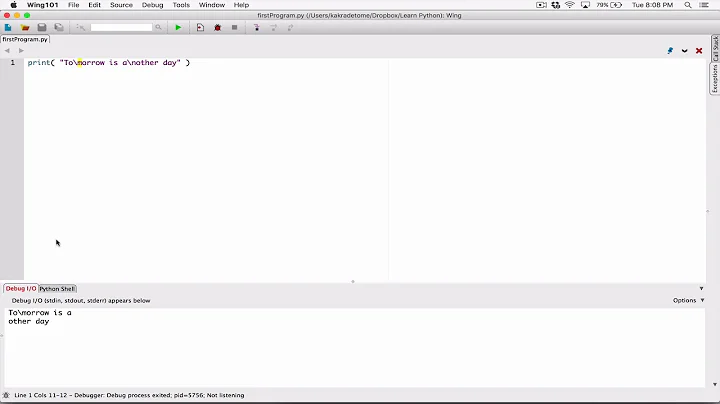How do I write a newline character in a character variable in Fortran?
You can use the NEW_LINE intrinsic function to query the character used to represent newline in formatted stream output. This character typically does what you want when you send it to the console. It is probably easiest to write it out using a separate character data descriptor in your format specification.
Using a slash edit descriptor is actually a request to progress to the next record. For an internal file (writing to a character variable), this is the next array element. In your example code you are passing a scalar as the character variable (so just one record), hence an end of file condition occurs.
Related videos on Youtube
user3222801
Updated on June 04, 2022Comments
-
user3222801 almost 2 years
I want to store newline character in my character buffer variable
buff. So far my code goes like this:program TYPE_CHECK c newline storage in buffer character(100), dimension(10) :: buff integer, dimension(10) :: x integer :: i do i=1,10 x(i) = i enddo do j=1,10 write(buff(j), 1) x(j), x(j) 1 format(' This is line ', I3, /, * ' This is newline ', I3) enddo do j=1,10 write(*, "(A100)") buff(j) enddo end program TYPE_CHECKThis gives the following error:
At line 13 of file myfoo6.F Fortran runtime error: End of file -
JohnE over 5 yearsWould you mind adding some sample code to make this a little more obvious?
-
 G. LC almost 5 years@JohnE Here is an example taken from link
G. LC almost 5 years@JohnE Here is an example taken from linkwrite(*,'(A)') 'This is record 1.'//NEW_LINE('A')//'This is record 2.'





![How to Add New Line JavaScript [All JavaScript Escape Characters]](https://i.ytimg.com/vi/r_HiEL5yPWI/hq720.jpg?sqp=-oaymwEcCNAFEJQDSFXyq4qpAw4IARUAAIhCGAFwAcABBg==&rs=AOn4CLBxSdnKOXtnyegqwF4UpTXcSpWCvw)

